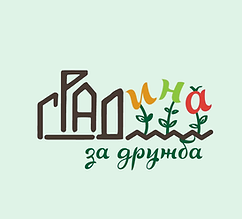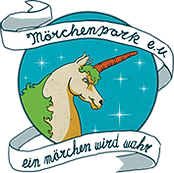EXAMPLES
Browse urban agriculture practices in Sofia

OrganicGarden
OrganicGarden is in the school for hearing disabled children “Prof. Decho Denev”, and it is a project of Agrolink association, supported by the mobile operator Mtel. It educates children to grow their food in a safe and sustainable way, by helping them learn the benefits of organic food.
Functions: Educational, Social, Ecological
LEARN MORE

The Growing Classroom
107 “Khan Krum” primary school is a project of Zaedno foundation for experiential learning and gaining skills for healthy living and positive communication with nature.
Functions: Educational, Ecological
LEARN MORE

Organic Garden Vitosha
Community organic garden, implementing the principles of permaculture, supported by Sofia municipality and the mobile operator Mtel.
Functions: Social, Educational, Ecological
LEARN MORE

Garden for Fellowship
Communal garden for urban agriculture.
Functions: Social, Educational, Production for personal use
LEARN MORE

Versa Natura
Family farm, producing ecologically clean fruit and vegetables.
Functions: Business, Commercial, Ecological
LEARN MORE

Experimental Field Vrazhdebna
Experimental field at the Forestry university in Sofia, for educational, research and production agricultural activities.
Functions: Education, training and research, production of animal and plant products
LEARN MORE

The community garden Mörchenpark in Berlin
The Mörchenpark is a non-profit organization and “green soul” of the Holzmarkt project and is a voting member of the Land Ownership Cooperative Holzmarkt. The Mörchenpark wants to pursue the request for public river-shore access, and at the same time provides a space for a community garden.
Historically, the Wall passed through this area. In the early 1990s, this space was in ruins. Later a group of people opened "Bar 25" on the site, which lasted more than 10 years. This increases investor interest. The municipality does not allow construction higher than 4 floors and so the investor's interest is declining. Later, the Swiss Foundation provided financial resources for building the current development.
In 2008 citizens organized themselves against the dense development of the river Spree shore and initiated and won the referendum “Spree shore for all”. At that time, 87% voted against the construction of skyscrapers on the bank river and another bridge for the motorized traffic. Instead, they demanded a minimum distance for new buildings to the shore and a public, near-natural riverside path. Thus the operators were able to provide a public river bank access. This caused the Senate to reject selling the space to an investor.
The Mörchenpark was founded in April 2012 and combines volunteer work of citizens in cooperation with numerous stakeholders. The Mörchenpark offers all interested parties a platform to join in and support the club activities as well as to realize their own ideas. Together with the supporters of the association, the members design and green the existing and emerging open spaces on the Holzmarkt site. The ecological and social topics and work areas of the civic association are actively promoted and implemented by the design and maintenance of vegetable and school gardens, the discussion of urban agriculture or the greening of roofs and walls of the Holzmarkt site.
At present the land is municipal property, but the cooperative (about 650 people) is the owner of the development. This is a project of social and business importance. The built several non-high-rise buildings provide rooms for rent, there are agricultural garden and café, where cultural events take place. On the territory of the complex there is a kindergarten, a music studio, a booking agency, and a green herb house.
Various practices of urban agriculture can be seen in the community garden: hanging gardens, permaculture garden, glasshouse, raised beds, green roofs, water filter systeme, school gardens. Different social activities are also held within the park, such as: dialogues with different actors from the city, cooperation, events for children and families, participation of citizens, etc.
The Mörchenpark also provides working spaces for low-budget artists and handicrafts. Participation takes place through activities such as sponsorship by the Holzmarkt, civil vote in the Holzmarkt cooperative, shore design, gardening, landscaping, etc.
With all its activities and initiatives Mörchenpark promotes social communication, environmental awareness of young people and adolescents, new knowledge and experience.
The slogan of the Mörchenpark is: Join us! Join in! Do it!
The report is prepared based on the participants' personal impressions as well as by information materials on the Mörchenpark website.